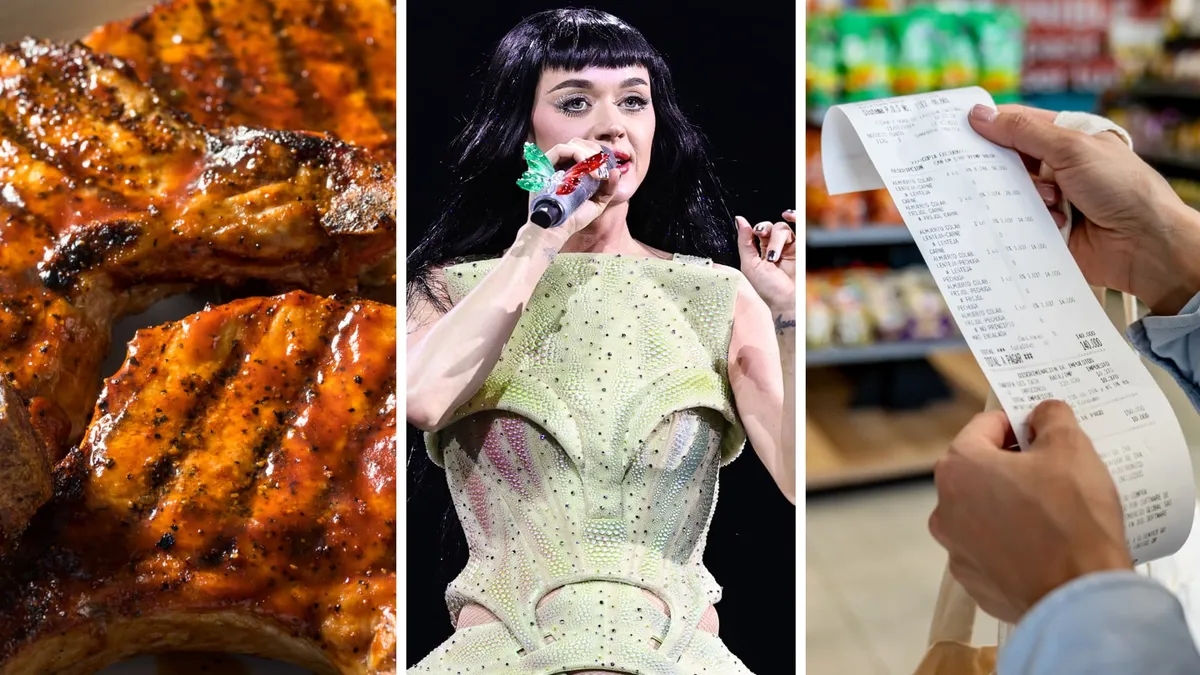
A few weeks ago, as Kiki Rough grew increasingly concerned about the state of the economy, she began to reflect on her experiences during previous financial hardships. Drawing upon her knowledge of making groceries stretch during tough economic times, Rough decided to create video guides that showcase recipes from cookbooks published during past recessions, depressions, and wartimes. This 28-year-old, who is not a professional chef but learned to cook while on food stamps, is using her platform to help others navigate similar feelings of uncertainty about the country's financial future.
From her yellow-and-black kitchen in the suburbs of Chicago, Rough teaches viewers how to prepare affordable meals and offers at-home substitutes for popular items like breakfast strudel or donuts. She frequently reminds her audience to substitute ingredients with alternatives already available in their pantries. “I keep seeing this joke over and over in the comments: The old poors teaching the new poors,” Rough shared with CNBC. “We just need to share knowledge right now because everyone is scared, and learning is going to give people the security to navigate these situations.”
As President Donald Trump announced broad and steep tariffs in April, fears regarding a potential recession have intensified. This growing anxiety is echoed by individuals like Rough, who are revisiting tips and tricks that helped them survive during the Global Financial Crisis of 2008. Google predicts a significant increase in search volumes this month for terms related to the recession that defined the late 2000s, with inquiries for the Great Recession expected to reach levels not seen since the onset of the Covid pandemic.
On platforms like TikTok, Millennials and Gen Xers have stepped up to share their experiences, offering advice to younger generations on how to save money. Some Gen Z users are even turning to older generations for insights on what a recession feels like, as they were too young to fully experience the 2008 financial crisis. “This is, potentially, at least on a large scale, the first time that millennials have been able to be the 'experts' on something,” said Scott Sills, a 33-year-old marketer from Louisiana. “We’re the experts on getting the rug pulled out from under us.”
Content creators are reminiscing about the frugal habits that characterized their lives during the recession. Affordable vacations to Florida replaced lavish trips abroad, and many kept folders for receipts in case big-ticket items went on sale later. Business casual outfits became the norm for social events due to budget constraints, and meals like pork chops, which were inexpensive, became staples. One creator even humorously stated that pork chops taste like the Great Recession.
However, some discussions have highlighted how inflation has rendered many of these traditional money-saving hacks ineffective. Content creator Kimberly Casamento began a TikTok series focused on recipes from a 2009 cookbook that featured affordable meals. She noted that the costs of these once budget-friendly meals have surged by 100% to 150%. “Every aspect of life is so expensive that it's hard for anybody to survive,” Casamento remarked. “If you can cut the cost of your meal by $5, then that's a win.”
This type of communal knowledge-sharing is particularly prevalent during times of economic uncertainty, according to Megan Way, an associate professor at Babson College specializing in family and intergenerational economics. “It’s a very human thing to reach out to others when things are feeling uncertain and try to gain on their experience,” Way explained. This digital exchange of wisdom is crucial, especially when fear permeates the economy.
Despite the shared experiences of the Great Recession, Way notes significant differences between that period and the current economic landscape. For instance, the absence of the bad debt that triggered the housing market crash in 2008 marks a key distinction. Nonetheless, the pervasive uncertainty surrounding various issues—be it economic, geopolitical, or domestic policy—mirrors the unpredictability of the past.
As the average American's economic confidence continues to decline, the University of Michigan's index of consumer sentiment recorded one of its lowest readings in over 70 years. This sharp negative outlook is accompanied by rising stress levels. TikTok user Lukas Battle humorously remarked on the spike in divorces during times of economic hardship, prompting discussions among viewers about their experiences.
Social media users are drawing parallels between the late 2000s and today. Nostalgic references are surfacing, from viral dance videos to the reboot of Disney's Phineas and Ferb, which evokes memories of the earlier era. Additionally, the rise of recession pop—a musical subgenre that gained popularity during the Global Financial Crisis—has made a comeback as Americans face inflation and rising interest rates.
As artists like Miley Cyrus, Lady Gaga, and Katy Perry return to the music scene, the echoes of the past are resonating with those who have weathered economic storms. “It’s almost a permission to feel good, whether that's through song or something,” Sills concluded. “It’s not necessarily ignoring the problems that are here, but just maybe finding some sort of joy or fun in the midst of all of it.”